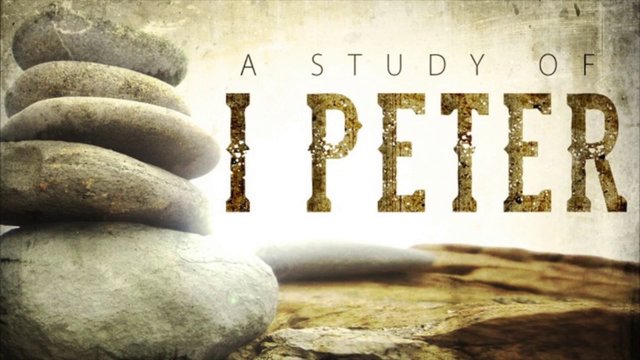This Tuesday, we are discussing 1 Peter 4. In vv. 1-11, Peter concludes his primary lesson on suffering and self-control that began with 2:11. This email is available online and on Facebook.
Peter’s Works of the Flesh: (vv.1-6)
One of the underlying themes in Peter’s conclusion to his primary lesson is dying in the flesh and living in the spirit. See, 3:18 and 4:6. Peter uses these two terms in a similar manner that Paul does. See, Rom. 8:1-11, Gal. 5:16-26. For both apostles, the focus is on an inward spiritual disposition that allows the Christian to endure and overcome persecution and worldly suffering. Look at Jesus. He was put to death in the flesh, but he was made alive in the spirit. It is the same with us. We are judged dead while in the flesh and are made alive in the spirit. Suffering belongs in the realm of the flesh, and we overcome suffering when we overcome the flesh.
Like Paul (Gal. 5:19-21), Peter has his own list of the works of the flesh that Christians must avoid – licentiousness, passions, drunkenness, revelry, carousing, and lawless idolatry. v.3. Here, Peter is reminding his audience about the life they left behind to follow Jesus, and he seeks to encourage them to continue in holy living. See, 1:16.
Peter then writes that “they are surprised that you do not now join them in the same wild profligacy.” v.4. Most likely, Peter is speaking directly about the bacchanalian worship in pagan temples, and how his audience not only should avoid such things, but in their avoidance, they will experience social ostracization and persecution. This is similar to the adversity faced by certain churches in Revelation 2-3 and in Corinth (2 Cor. 6). This worship at the local pagan temple would have been part of the civic life of the community in which Peter’s audience resided. These temple festivals would have been the glue that held the local community together, and anyone not participating in the festivals would be seen as being anti-social, anti-religious, and, potentially, anti-emperor. Anyone forgoing these acts would necessarily marginalize themselves and open themselves to persecution.
Peter’s Fruit of the Spirit: (vv.7-11)
Peter concludes the primary lesson of his letter with what the Christian life should look like. If you remember, Peter opened his letter with a quote from Leviticus 11:45: “You shall be holy, for I am holy.” 1:16. It is here in these last verses, that Peter tells us what holiness looks like: enduring love, ungrudging hospitality, and good stewardship in words and deeds. Peter does not tell us that we should simply love one another, but he goes further and writes that our love should be fervent, unfailing, earnest, and sincere. The Greek adjective Peter uses is ektenes which literally means stretched to the limit or completely taunt. That is the type of love that we must have for one another.
Peter goes on to write that we must not simply be hospitable, but that our hospitality must be without grudging, without murmuring, and without complaint. Once more, it is not simply that we should perform a certain act, but that act must be pure without any reservation.
Finally, Peter tells us that we should “render service as good stewards” of God’s grace and glory. The Greek words Peter uses is that we serve – diakoneo – as stewards – oikonomos. “To serve” means to wait on a table, particularly as a slave who waits on guests, and a “steward” means a household manager who was generally a recently freed slave given additional responsibilities.
Therefore, think back to Peter’s household codes where he instructs his audience to submit to governing authorities, for slaves to submit to masters, and for wives to submit to their husbands. In these last verses, he is telling his audience and us, that we must submit to each other in the same way. To be holy as God is holy is to submit to one another in service and stewardship.
Dinner is at 6. The menu is shrimp pasta salad. Discussion at 6:45. Compline at 8. Hope to see you here!
Jesus called them to him and said to them, “You know that those who are supposed to rule over the Gentiles lord it over them, and their great men exercise authority over them. But it shall not be so among you; but whoever would be great among you must be your servant, and whoever would be first among you must be slave of all. For the Son of man also came not to be served but to serve, and to give his life as a ransom for many.”
Mark 10:42-45

